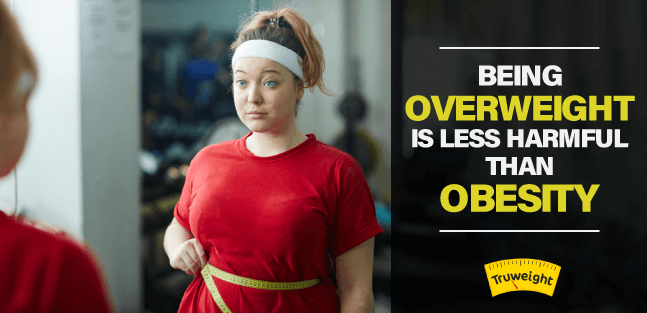Health, Weight Loss
What Is Difference Between Being Obese And Being Overweight?
BMI has always been an overarching factor in the overweight vs. obese debate.
BMI is an individual’s weight (kg) divided by his/her height squared (meters).
A higher BMI indicates higher levels of body fat. So, what does being overweight and obese mean, how are they related to BMI, and how do they indicate body fitness levels? So,
Table of contents
- Definition of obese and overweight
- Difference between overweight and obesity
- Overweight vs obese BMI chart
- Risks of being overweight vs obese
What is the definition of obese and overweight?
‘Overweight’ and ‘obesity’ describe a person’s weight which is greater than what is the usually healthy weight for the same height.
‘Obesity’ is the state of being overweight and ‘overweight’ is how much above the normal weight someone weighs.
Obese and overweight also identify the weight ranges which could be possible for the occurrence of some diseases and other health problems.
Difference between overweight and obesity
So, how are being overweight and being obese differentiated? The difference between overweight and obese essentially is the BMI.
| BMI = Weight in kilograms (Height in metres)2 |
If a person has a BMI of 25-29.9, he or she is defined as overweight, and a BMI of 30 or higher is what defines a person as obese.
So, the difference between obese vs. overweight is, literally, a BMI difference of 0.1. Calculate your BMI immediately.
So, what is the weight to be considered obese? The range of weight that is considered ‘healthy’ or ‘normal’, again, is dependent on the height of the individual, or the BMI, comes into play again.
Find your ideal weight using your BMI.
Overweight vs obese BMI chart
Did you know that there’s also a difference between overweight vs. obese vs. morbidly obese? This chart below will help you.
| Risk of disease w.r.t. normal waist and weight circumference | ||||
| State of health | BMI (kg/m2) |
Obesity Class |
Men 40” (102cm) or less, Women 35” (88cm) or less |
Men >40” (102cm) Women >35” (88cm) |
| Morbidly obese | 40.0 + | III | Extremely High | Extremely High |
| Obesity
|
35.0-39.9 | II | Very High | Very High |
| 30.0-34.9 | I | High | Very High | |
| Overweight | 25.0-29.9 | Increased | High | |
| Normal | 18.5-24.9 | – | – | |
| Underweight | Less than 18.5 | – | – | |
Health note: Individuals should note that BMI calculations aren’t set in stone when it comes to categorizing your health and these calculations can be relative.

Did you know?
According to health organizations, being morbidly obese (a BMI of 40 or more) indicates excess body fat which will adversely affect health and cause problems in movement. These problems were observed in people who were in their mere 20s and 30s.
They were observed to either suffer from chronic health issues due to obesity, or used motorized chairs and canes, or used health aids usually used by the elderly, or have handicapped stickers on their cars for the mere reason of not being able to carry their own weight around.
The fact is that an individual in these age groups should not have to use these unless they are injured or are ill, and they end up paying a high price for their obesity.
Risks of being overweight vs obese
What are the risks of being overweight vs obese? Being overweight, if unchecked, leads to obesity.
Although an overweight person faces the same risks, he or she is less susceptible to them and can even avoid them if they understand these health risks in time and take corrective action.
Obesity could cause serious health problems including hypertension, diabetes, high blood pressure, shortened lifespan, calorific imbalance, and coronary heart disease, among others.
They are also at high risk of social problems such as depression, bullying, troubled relationships, isolation, and even withdrawal from regular life.
Did you know?
The National Institute of Diabetes and Digestive and Kidney Diseases’ (NIDDK) ‘Look AHEAD: Action for Health in Diabetes Trial’ has shown that weight loss has immense health benefits including better quality of life and better physical mobilityand quality of life.
While extreme cases of obesity might require surgery, managing obesity is also possible via losing weight, which can be done by increasing physical activity and by eating a balanced diet.
FAQs
1. What is the weight for being obese?
The BMI decides the range of weight that is considered normal or healthy, which is the weight divided by the height squared. A BMI of 30 or more indicates obesity.
2. What is a good percentage of body fat?
According to widely-accepted research, essential fat percentage in men and women is 2-5% and 10-13% respectively, athlete level fat in men and women is 6-13% and 14-20% respectively, fitness level fat in men and women is 14-17% and 21-24% respectively, average fat levels in men and women is 18-24% and 25-31% respectively, and obesity is indicated by a fat percentage of 25%+ (men) and 32%+ (women).
3. How much overweight is obese?
Overweight vs. obese is calculated using the BMI. A BMI range of 25-29.9 is overweight, and anything above 30 is obese. When it comes to the difference in weight, it is calculated on the basis of the BMI.

haha my mother keeps saying i’m obese, but i show her this and tell her i’m not! are those handheld bmi machines better? also, i been thinking of losing weight for a while, help pls??
Hi Melanie! We would like to inform you that our program helps you in lose weight in natural way without any pills, powders and machines. Kindly follow the provided link or call on toll free number 18001021255 to speak to the concerned team. https://truweight.in/blog/food-and-nutrition/indian-diet-plan-weight-loss-4-weeks.html
Hi! I’ve been studying a lot about obesity until I’ve run into your article. Thanks for your info! Now I know that I’m just obese. Haha. But I do struggle with my weight. Recently, I’ve got to download a free pdf that explains the detoxifying process of our body. I read it and I’ve realized that I have missed too many info in my life that caused me to be this.
Your review will be really helpful! I know there are so many information out there.
Hi Felina! We are glad that you liked our article, which explains about the difference between obese and being over-weight and foudn it very helpful. Keep following our blog to know more health information.
And also, please inform me of your new post in my email! Thanks a lot!
Hi Felina! We would like to inform you that follow our page in Instagram, Facebook, Twitter and Youtube channel to know more health information.